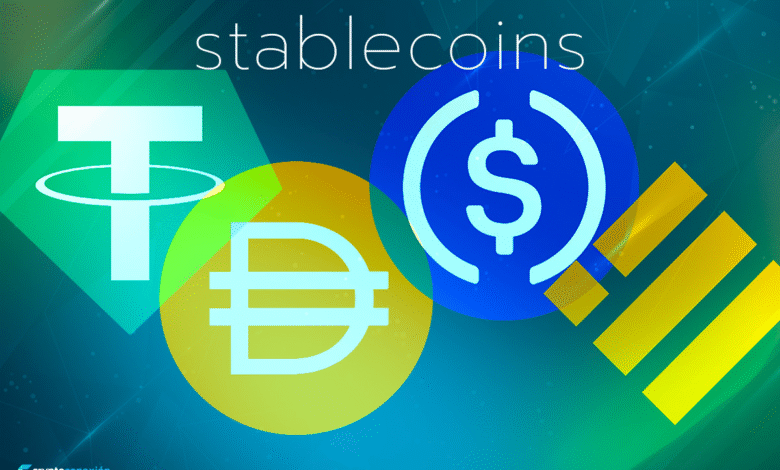Stablecoins: An Opportunity for Western Union’s Future

Stablecoins have emerged as a transformative force in the financial landscape, presenting opportunities for companies like Western Union to innovate. Devin McGranahan, CEO of Western Union, recently articulated his vision in an interview, recognizing that stablecoins can facilitate faster and more cost-effective cross-border transactions. By leveraging the unique advantages of these digital currencies, Western Union aims to enhance the customer experience while navigating regulatory developments such as the GENIUS Act. This new legislation creates a clear framework for stablecoins, making them more accessible and usable for consumers. As the company explores new cryptocurrency partnerships, stablecoins will play a pivotal role in redefining traditional payment systems.
Digital currencies, particularly stablecoins, represent a promising advancement in financial technology. These assets, pegged to fiat currencies, offer the potential to streamline international money transfers and reduce transactional fees significantly. In light of recent regulatory changes, such as the GENIUS Act, businesses like Western Union are beginning to adopt these innovations, enabling them to adapt to evolving market demands. The dialogue around stablecoins is shifting from skepticism to recognition of their benefits, allowing financial institutions to leverage them in new ways. As such, the push towards cryptocurrency partnerships signifies a broader move towards integrating digital currencies within conventional financial frameworks.
The Future of Stablecoins in Cross-Border Transactions
In recent discussions about the evolution of financial transactions, stablecoins have emerged as a pivotal factor in enhancing cross-border transfers. Western Union’s CEO, Devin McGranahan, highlighted that these digital currencies could streamline the complex and often costly process of international money movement. By utilizing stablecoins, companies like Western Union can reduce transaction fees and enhance speed, making it easier for customers to send and receive money globally.
McGranahan’s perspective reflects a broader trend in the financial industry where traditional payment systems are being augmented by blockchain technology. As stablecoins offer price stability linked directly to fiat currencies, they hold the potential to facilitate smoother exchanges in regions where currency volatility poses challenges. This integration could attract a new segment of tech-savvy consumers looking for efficiency in their financial transactions.
How the GENIUS Act Impacts Stablecoin Regulation
The GENIUS Act represents a significant shift in regulatory frameworks surrounding digital currencies, particularly stablecoins. By establishing clearer guidelines, this act aims to foster innovation while ensuring consumer protection within crypto markets. For Western Union and other financial services providers, this legislative move signifies an encouragement to explore viable cryptocurrency partnerships, potentially transforming how their services are delivered in the evolving digital economy.
With the support of the GENIUS Act, stablecoins could be more seamlessly integrated into existing payment systems, allowing traditional companies like Western Union to adapt to modern consumer demands. As regulations become clearer, firms will likely feel more secure in experimenting with new technologies and collaborative ventures that harness the efficiency of cryptocurrencies, presenting exciting opportunities for growth within the cross-border payments landscape.
Moreover, McGranahan’s insights into the partnership potential within the cryptocurrency sphere emphasize the growing acceptance of stablecoins as practical solutions for remittances. By leveraging stablecoins, Western Union could not only broaden its service offerings but also position itself strategically to compete with emerging fintech solutions that dominate the digital landscape.
The Role of Cryptocurrency Partnerships in Financial Services
In an era where digital innovation drives the financial sector, cryptocurrency partnerships have become essential for companies aiming to stay relevant. Western Union’s exploration of collaborations within the crypto space highlights the growing recognition of stablecoins as significant tools for enhancing payment systems. By aligning with blockchain initiatives, firms can tap into new customer bases while modernizing their existing services.
These partnerships often lead to the creation of integrated solutions that simplify transactions for users, from instant payments to lower fees. Additionally, embracing stablecoins within these collaborations can help companies mitigate risks associated with currency fluctuations, a crucial aspect when operating in multiple international markets. The potential for a synergistic relationship between traditional financial institutions and the cryptocurrency ecosystem is vast and promising.
Embracing Innovation: Western Union’s Strategy with Stablecoins
Western Union’s approach to incorporating stablecoins into its business model signifies a commendable shift towards innovation in financial services. By viewing stablecoins as an opportunity rather than a threat, the company acknowledges the potential to redefine customer interactions with money transfers. Embracing advances in technology allows Western Union to remain competitive, particularly as newer fintech solutions continue to disrupt traditional models.
As stablecoins offer unique advantages such as speed and cost-effectiveness, Western Union is taking steps to ensure its services align with the expectations of the modern consumer. By consistently exploring the integration of stablecoins, the company is positioning itself to meet rising demand for fast and low-cost remittance options, especially in regions where financial services are underdeveloped.
Challenges and Opportunities of Stablecoin Implementation
While the prospects of stablecoins in enhancing the efficiency of cross-border transactions are promising, there are notable challenges to consider. Regulatory frameworks are still evolving, and concerns regarding security, tax implications, and liquidity must be addressed. Companies like Western Union must navigate these complexities while maintaining compliance with relevant legislation, particularly as laws like the GENIUS Act are introduced to provide clarity.
Despite these challenges, the potential benefits that stablecoins bring to the table are significant. By fostering relationships with cryptocurrency providers and adapting to a more fluid financial environment, Western Union can capitalize on the opportunity to meet customer demands for flexibility and lower transaction costs. Building robust operational frameworks that accommodate the stablecoin ecosystem will be essential for harnessing these benefits effectively.
Stablecoins vs. Traditional Currencies: A Comparative Analysis
In the world of remittances and cross-border transactions, the comparison between stablecoins and traditional currencies is becoming increasingly relevant. Stablecoins, as discussed by Devin McGranahan of Western Union, present an innovative alternative that offers stability linked directly to fiat currencies. Unlike volatile cryptocurrencies, stablecoins are designed to minimize price fluctuations, making them a reliable option for users looking to send money abroad.
On the other hand, traditional currencies have their established systems, often perceived as cumbersome and slow, especially during cross-border transactions. By leveraging the advantages of stablecoins, Western Union could challenge conventional norms and provide customers with faster and more cost-effective solutions. This evolution could enhance user experience significantly, as consumers find themselves gravitating towards more efficient payment methods.
The Impact of Stablecoins on Future Payment Solutions
As the financial landscape continues to evolve, the impact of stablecoins on payment solutions is undeniable. With advancements in blockchain technology, stablecoins pave the way for cheaper and quicker transfers. As highlighted by McGranahan, these digital currencies could lead to transformative changes within Western Union’s existing services, potentially allowing them to capture a larger share of the market by appealing to consumers looking for convenience and speed.
The future will likely see an increasing blend of traditional and digital currencies, wherein stablecoins can complement existing systems and enhance overall payment efficiency. By committing to integrate stablecoins into their services, Western Union is poised to play a crucial role in shaping the next generation of financial transactions, ensuring that they evolve alongside consumer expectations and technological advancements.
Navigating the Landscape of Cross-Border Financial Services
The landscape of cross-border financial services is rapidly changing, driven by technological advancements and shifting consumer behaviors. Western Union, under the leadership of Devin McGranahan, is navigating this evolution by exploring the implementation of stablecoins as a key component in their service offerings. This proactive approach positions the company to adapt to emerging trends while responding to the needs of a global market that values speed and cost-effectiveness in money transfers.
As competition in the remittance industry intensifies, companies are seeking innovative ways to differentiate themselves. By embracing stablecoins, Western Union can offer unique advantages that traditional methods simply cannot match. The focus on enhancing cross-border payment experiences through digital solutions not only benefits consumers but also strengthens Western Union’s position as a leader in the financial services sector.
The Future of Remittances: Integrating Technology and Compliance
As technology continues to reshape the remittance landscape, the integration of innovative solutions with compliance frameworks will be crucial. With the enactment of the GENIUS Act, Western Union can rely on a solid regulatory foundation to explore the full potential of stablecoins in their operations. This balance between innovation and compliance will be essential as the company seeks to offer flexible and reliable services that meet modern consumer demands.
The future of remittances lies in the successful fusion of technology and regulatory adherence. By prioritizing partnerships within the cryptocurrency ecosystem while ensuring compliance, Western Union can lead the charge in revolutionizing the remittance experience. This strategic direction promises not only to address current challenges but also to unlock new pathways for growth in the fast-evolving world of cross-border payments.
Frequently Asked Questions
What are stablecoins and how do they relate to cross-border transactions?
Stablecoins are a type of cryptocurrency designed to maintain a stable value by being pegged to traditional assets like fiat currencies. They are particularly useful in cross-border transactions as they offer faster and cheaper alternatives to traditional payment methods, making them an attractive option for companies like Western Union.
How is the GENIUS Act influencing the use of stablecoins in the cryptocurrency market?
The GENIUS Act is significant legislation that establishes a regulatory framework for stablecoins in the U.S. It is designed to support the safe and effective use of stablecoins, which may enable companies like Western Union to integrate these digital assets into their services, enhancing cross-border transaction efficiency.
Can Western Union leverage stablecoins for faster transactions?
Yes, Western Union, led by CEO Devin McGranahan, sees stablecoins as a potential opportunity to streamline their services. By utilizing stablecoins for cross-border transactions, Western Union aims to provide faster and more economical solutions for its customers.
What did Devin McGranahan say about the role of stablecoins in Western Union’s business model?
Devin McGranahan, CEO of Western Union, stated that stablecoins represent an opportunity rather than a threat to the company. He highlighted their potential to facilitate swift cross-border transactions, which could enhance the company’s service offerings.
Why can’t stablecoins be used like traditional currency in certain regions?
Stablecoins, although pegged to traditional currencies, may not be universally accepted as a payment method due to regulatory constraints and liquidity issues in various regions. However, they can be converted to fiat currency, providing flexibility in areas with limited financial infrastructure.
What opportunities do partnerships in the cryptocurrency sector create for stablecoins?
Partnerships within the cryptocurrency sector can foster innovation and integration of stablecoins into traditional financial systems. Western Union’s exploration of such partnerships could lead to enhanced services utilizing stablecoins, potentially transforming their cross-border transaction capabilities.
| Key Points | Details |
|---|---|
| Opportunity for Western Union | Stablecoins are seen as beneficial rather than threatening for the business model. |
| Efficiency of Transactions | Stablecoins can facilitate faster and cheaper cross-border transactions. |
| Conversion to Fiat Currency | While not traditional currency, stablecoins can be exchanged for fiat, particularly in areas with low liquidity. |
| Regulatory Framework | The GENIUS Act in the U.S. provides a regulatory framework that could allow integration of stablecoins into services. |
| Partnerships in Cryptocurrency | Western Union is looking to explore partnerships within the cryptocurrency sector. |
Summary
Stablecoins represent a significant opportunity for financial service providers like Western Union. They are poised to enhance the efficiency of cross-border transactions and expand access to financial services in regions with limited liquidity. Moreover, with the development of regulations like the GENIUS Act, stablecoins can be seamlessly integrated into existing systems, allowing companies to benefit from faster and cheaper transaction methods while exploring innovative partnerships within the cryptocurrency landscape.




